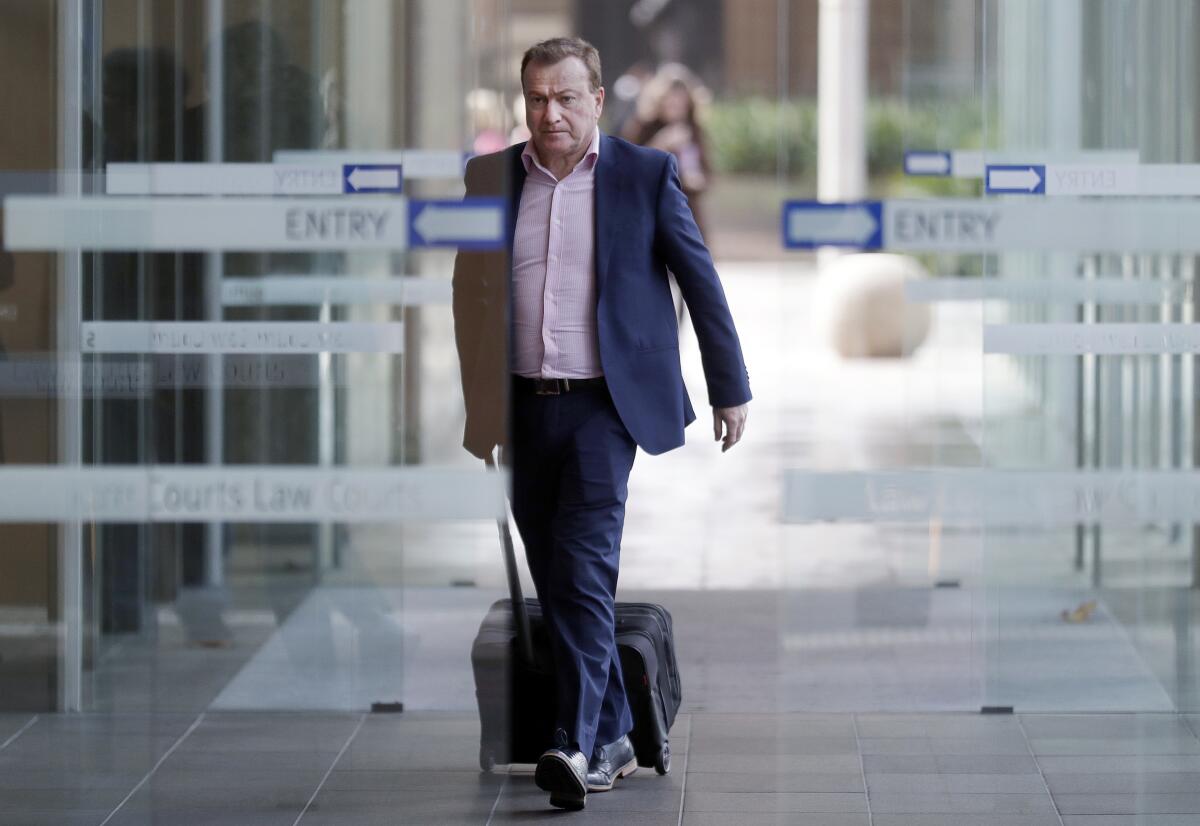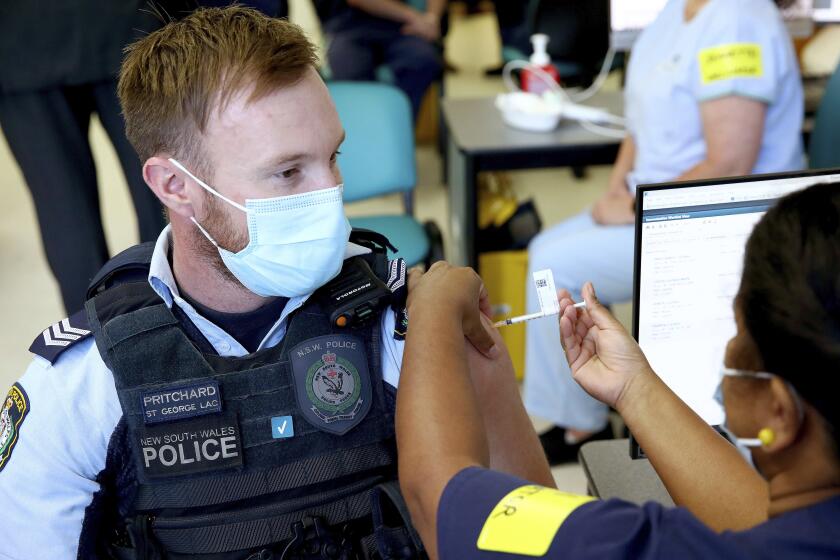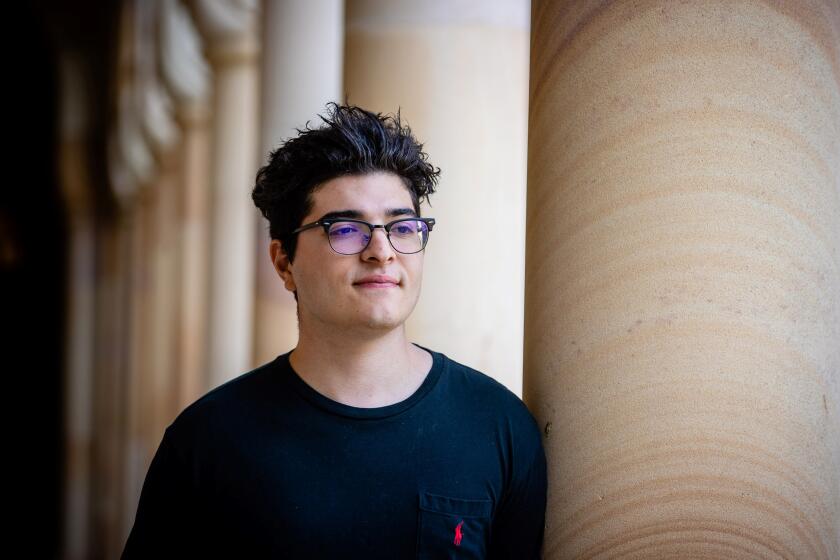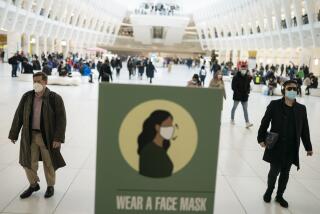Australian court upholds government ban on residents traveling abroad

CANBERRA, Australia — An Australian court on Tuesday rejected a challenge to the federal government’s near-blanket ban on international travel by residents, a measure that was instituted to keep the coronavirus out.
Australia is alone among developed democracies in preventing its citizens and permanent residents from leaving the country except in “exceptional circumstances” where they can demonstrate a “compelling reason.”
Most Australians have been confined to their island nation since March 2020 under a government emergency order made under the powerful Biosecurity Act.
Libertarian group LibertyWorks argued before the full bench of the federal court in early May that Health Minister Greg Hunt did not have the power to legally enforce the travel ban, which has prevented thousands of Australians from attending weddings and funerals, caring for dying relatives and meeting newborn babies.
LibertyWorks lawyer Jason Potts argued that Australians had a right to leave their country under the International Covenant on Civil and Political Rights that Australia had ratified.
But the three judges ruled that the complaint was based on the “erroneous premise that the right is absolute.”
A TV and film industry is booming in Australia’s coastal town of Byron Bay, and promoters are banking on expansion, thanks to its A-list celebrities.
LibertyWorks’ lawyers also argued that such a biosecurity control order could be imposed only on an individual and not an entire population, and only if that individual had symptoms of a listed human disease, had been exposed to such a disease or had failed to comply with travel requirements.
The judges ruled that that interpretation of the law would frustrate Parliament’s clear intentions when lawmakers created the emergency powers in the Biosecurity Act in 2015.
“It may be accepted that the travel restrictions are harsh. It may also be accepted that they intrude upon individual rights,” the judges said in their ruling. “But Parliament was aware of that.”
LibertyWorks President Andrew Cooper said he was considering an appeal to the High Court.
Australia has started its COVID-19 inoculation program days after its neighbor New Zealand, with little sense of hurry in either country.
“We are very disappointed in the judgment today. We continue to believe that the outbound border closure is defective in law and, perhaps more importantly, unjust on human rights grounds. We must remind ourselves also that often things that are legal are not necessarily just,” Cooper said in an email.
“While Europe and most of the world open up their borders, only North Korea and Australia stubbornly continue with strict controls over their citizens’ ability to leave their country,” Cooper added.
He had expected hundreds of thousands of Australians to fly within weeks if he had won.
Critics of the emergency order say that it is harshest for the 30% of Australians who were born overseas.
Drew Pavlou’s battle against the University of Queensland illustrates China’s influence over a key U.S. ally.
The government says tough border controls have played an important part in Australia’s relative success in containing the coronavirus spread. Surveys suggest that most Australians approve of their government’s drastic border controls.
The Australian newspaper published a survey last month in which 73% of respondents said the international border should remain closed until at least the middle of next year.
The Australian Broadcasting Corp. last week reported that its own survey had found 79% of respondents agreed that the international border should stay shut until the pandemic was under control globally.
Critics of the travel restrictions argue that decisions on who can travel and why are inconsistent and lack transparency.
Start your day right
Sign up for Essential California for the L.A. Times biggest news, features and recommendations in your inbox six days a week.
You may occasionally receive promotional content from the Los Angeles Times.
Esther and Charles Baker, an ultra-Orthodox Jewish couple from Australia’s second-largest city, Melbourne, were twice refused exemptions to fly to New Jersey to attend their youngest son’s wedding in June last year.
They appealed to the federal court, citing religious and cultural reasons among their exceptional circumstances. But a judge dismissed their case and ordered the couple to pay the government’s legal costs for their challenge.
A person at the center of a coronavirus cluster in Melbourne had been allowed to attend a wedding in India. He was not infected in that country but rather during the required 14-day hotel quarantine upon his return. Authorities said he was infected by a traveler in another room on his floor and that the coronavirus was carried in the air.
Melbourne began a seven-day lockdown Friday because of the outbreak, which by Tuesday had grown to more than 50 cases.
More to Read
Sign up for Essential California
The most important California stories and recommendations in your inbox every morning.
You may occasionally receive promotional content from the Los Angeles Times.












